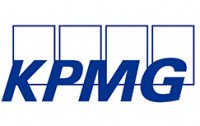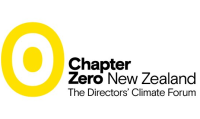
The emperor’s new clothes

Stakeholders are looking for substance so it’s time to make decisions about sustainability ambitions as a business leader and for the organisations you lead.
Since the government announced mandatory climate reporting in September 2020, you will have heard more than enough about New Zealand’s climate-related disclosures regime. The final dotting of the ‘i’s and crossing of the ‘t’s of the new climate standards is still in progress. However, there has been sufficient detail provided over the past year so that no company can claim ignorance when it comes to the reporting requirements.
It may be true that “it is never too late . . . [to make a start]”. The issue though is how quickly can real, deep change be implemented across a whole organisation to provide substantive reporting. With the condensed reporting timetable, it is more likely that reporters will seek to do little more than tick the box and deliver minimum compliance with the rules in their early climate statements.
The focus is on the next round of reporting from the 200 or so entities within the scope of the legislation for clues as to the progress they are making in identifying their climate-related risks and opportunities, and how they are approaching their first mandatory climate disclosure statement.
In the meantime, multiple conversations are already taking place with clients that are not within the scope of the mandatory reporting requirements but are recognising the new standards will impact their business. Companies outside the scope of the legislative requirements are realising the standards are about much more than the report produced. They are recognising the standards are about business resilience and the ability to work collaboratively to make the most of the opportunities presented as the global and domestic economy transitions towards a low-emissions, climate-resilient future.
There is also a sense the boardroom conversation is moving beyond the topic of climate change. Greenhouse gas emissions and net-zero targets are important, but the strategic conversation around the table is shifting to consider broader environmental and social aspects that create risk – but also opportunity for an organisation.
In preparing for the recent CEO Outlook publication, it was found that a stunning 87% of Kiwi CEOs believe major global social and environmental challenges – such as income inequality, procurement practices, biodiversity, inclusion and diversity, and governance – are a threat to their company’s long-term growth and value. Globally the figure is 72%, suggesting this is being felt more acutely in New Zealand. In addition, 83% of Kiwi CEOs are seeing a significant demand from their stakeholders for sustainability reporting and transparency.
This statistic is in stark contrast to the findings in the recent KPMG Global Sustainability Reporting Survey. The survey of the Top 100 companies in New Zealand found there has not been significant progress in ESG and sustainability reporting over the past two years, since the plan to mandate climate reporting was announced. In fact, the progress that corporates have made has been comparatively less than in many countries, with New Zealand now ranked 38th for sustainability reporting out of the 58 countries included in the survey.
A more modern and holistic approach to embedding ESG principles into business strategy and reporting can differentiate an organisation and create a return on investment. We are waiting for business leaders in New Zealand to align their apparent understanding of this with their actions, and consistently move beyond a compliance mindset in respect of non-financial reporting.
The conclusion is New Zealand organisations are moving backwards compared to international peers when it comes to reporting, despite being one of the first countries in the world to mandate climate-related disclosures.
The time for talk and selective communication is over. Ask yourself the following three questions to determine your organisation’s ambition:
1. What is the motivation for change?
Consider which of the following statements resonate:
- “We want to be a social and environmental leader”
You feel strongly about generating value for society and want to ensure others appreciate the urgency, too. - “We want to build a competitive advantage through sustainability”
You want to use sustainable practices to generate business value. - “We want to meet our obligations”
You want to act in accordance with the law and respect the required minimum standards of your stakeholders.
2. What is the appetite for change?
Consider who sponsors the change programme, the resources allocated, and whether people across the business are involved and engaged.
3. Does the answer to question one point in the same direction as the answer to question two?
Hopefully, the answer is “yes”. But even a “not yet” could provide valuable information in determining your future ESG pathway.
Becoming an organisation with sustainability at its core is about playing the long game. There are no right or wrong answers to the above questions. It is about determining what makes sense for the organisations and boards you are part of as you progress towards delivering on your purpose.
It is also time to widely communicate the targets, performance measures, and action plans you are working towards to add accountability to delivering on your identified ambitions.
Effectively reporting beyond financial performance is inherently complex. There has been a tendency to selectively focus on reporting positive progress. However, with increased concerns of “greenwashing”, we are seeing increased scrutiny of claims being made and demand for transparency. Reporting on performance (or lack of) needs to be balanced. Organisations will move forward faster by shining a light on not only their successes but also the constraints and challenges they are working through.
Don’t underestimate your stakeholders. They are not only becoming more sophisticated in assessing whether a company is serious about its sustainability claims; technological developments are also helping to make the assessments and comparisons of companies easier and more effective. They are looking for substance. And they will not hesitate to call out when they see the emperor has no clothes on.




